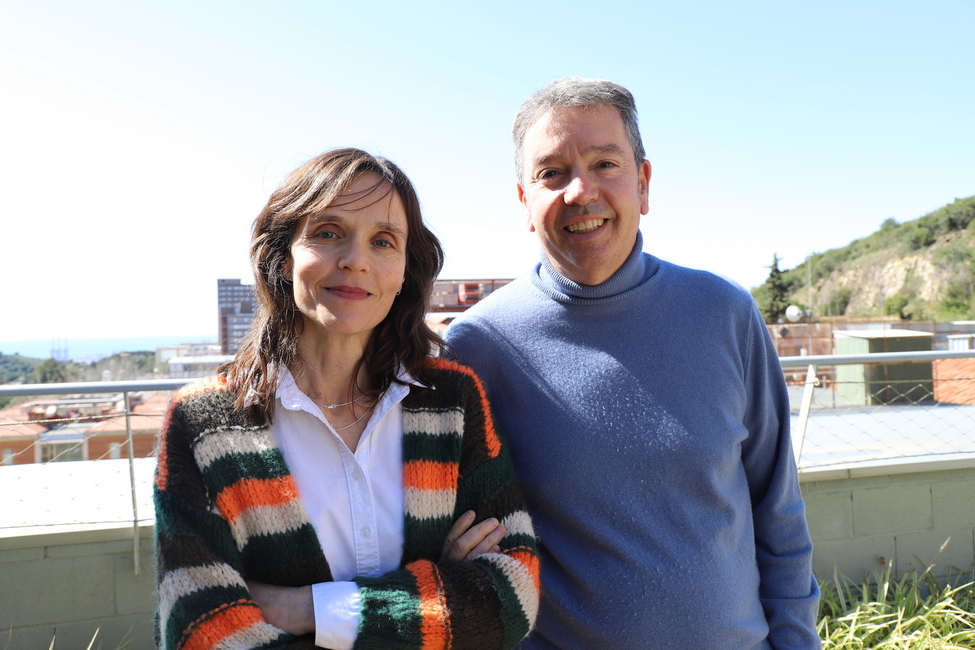Eulàlia Genescà and Francesc Solé: “We are taking real steps towards the implementation of the so-called personalized medicine”
The diagnostic tools for leukemia that basic research makes available to clinicians are constantly increasing and new genomic sequencing and artificial intelligence technologies are penetrating a world dominated, until recently, by classical methodologies based on direct microscopic observation and analytical indicators.

The course "NEXT generation diagnosis in leukemia", coordinated by Dr. Eulàlia Genescà and Dr. Francesc Solé, researchers at the Josep Carreras Leukaemia Research Institute, is one of the few opportunities hematologists have to learn about new developments in molecular diagnostics and discuss their integration into the clinical context. The second edition of the course will be held online the upcoming May 9th to 11th.
We spoke with them, who told us about the importance of genomics to achieve a better and more accurate diagnosis of leukemias and other diseases, and why NEXT is committed to providing information on the latest genomic and artificial intelligence techniques.
This year, the second edition of NEXT will be held again in a completely digital format. What advantages does this format give you?
The 100% online course allows us to reach a wider audience, although at the cost of less interaction. Being a course oriented to professionals and clinical diagnosis, for now we prioritize attendance. Perhaps we will move to an hybrid structure in future editions, but we will have to see how we organize it.
You have chosen to return to the topic of genomics in diagnosis. Did you miss anything in last year's edition?
The long story short: there is a lot to talk about! Genomics as such involves different techniques that give us genetic data from the whole genome, and such data is not always easy to interpret. For each type of leukemia, we must select the most appropriate technique(s) for a good diagnosis. The first year, we talked about frequent leukemias and, this year, we are focusing on rare leukemias and hematological malignancies.
What differentiates NEXT from other leukemia-focuses courses?
NEXT, as its name indicates, is something in continuous evolution; the idea is that each year new knowledge is incorporated. The world of genomics in diagnosis is a field in continuous evolution, so there are always new things to explain. For example, new concepts such as "big data" or "machine learning", a form of artificial intelligence. This is an emerging new field that will undoubtedly have an impact on the future of diagnostics.
What advantages do genomic techniques have over other techniques?
The biggest advantage is that these techniques have high sensitivity and high resolution. We can identify genetic alterations in very few leukemic cells, that is, we can detect smaller and smaller alterations. This is important, for example, for detecting mutations responsible for patient relapse. These mutations are found in a few leukemic cells, many already present at the time of diagnosis, and it is important to be able to identify them.
Are genomic techniques complementary to current methodologies?
Yes, in some neoplasms more than in others. For example, in myelodysplastic syndromes it is first necessary to perform a karyotype and then complement it with a sequencing study of the genes that are most involved in the diagnosis and prognosis of the disease. In other leukemias, however, such as T-lymphoblastic leukemia, karyotyping is very uninformative, so it is very important to apply genomics to predict the patient's evolution.
Is it possible to talk about numbers before and after applying genomics in diagnosis?
Genomics is just starting to be applied in diagnostics and it is too early to see the "after", but there will undoubtedly be an "after". We are making real steps towards the implementation of what we call personalized medicine. We are going to have a new range of possible therapies based on the application of drugs targeting the affected genes, available for use in case of patient recurrence. This is the future we want to reach, and we are moving relentlessly towards it.
How has this methodology evolved in recent years?
Very rapidly, becoming more and more accessible. Running costs have been reduced and the preparation of the material needed for sequencing is becoming simpler, more efficient and reproducible. The analysis of these data has also been simplified, which has helped clinicians to use genomics techniques in routine hospital practice.
Do you think it is time to update medical studies and introduce the study of genomics in medical schools?
Undoubtedly, we should orient the training of future doctors towards this. All this new genomic knowledge, leading us towards personalized medicine, should be taught at Med Schools and life sciences grades like biology, pharmacy, etc. And not only genomics: artificial intelligence and machine learning will also be applied in diagnosis. We must learn to use these new methodologies if we want a future where all diseases are curable.
The NEXT course is a unique opportunity to learn from great researchers, leaders in their fields, about what will be the future of biomedicine. The scientific program of the course is endorsed by the Spanish Society of Hematology and Hemotherapy (SEHH) and the PETHEMA Foundation. It is available free of charge on their website. The course is accredited by the EACCME (European Accreditation Council Continuing Medical Education) with 9 credits.